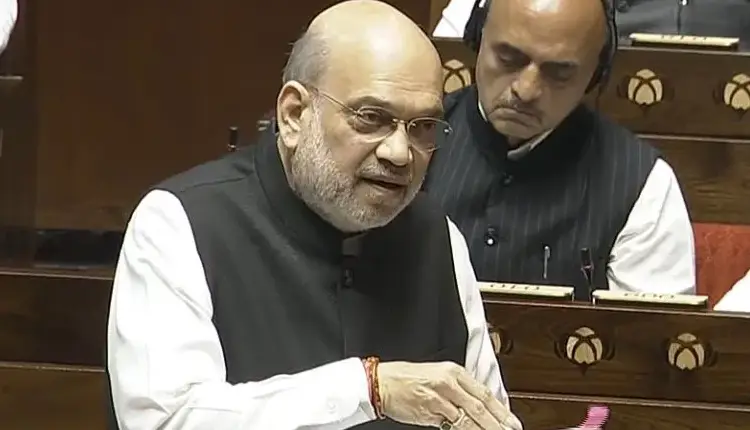NewDelhi: During a 45 minute speech, at the Rajya Sabha amid the deliberations. Home Minister Amit Shah delivered an analysis of the actions of the Congress Party. with a special emphasis on issues related to territorial boundaries and changes, to the constitution during the tenures of Jawaharlal Nehru and Indira Gandhi.
Shah raised concerns, about the application of Article 35 in Jammu and Kashmir. Called out the Congress to present the parliamentary documents detailing their discussions and decisions, on this issue.”Can you disclose when Article 35 was incorporated into the Constitution?” Shah questioned while delivering his speech.
Article 35A was established under Nehrus leadership by a decree to offer rights to the assembly of Jammu and Kashmir in determining permanent residents and their entitlements. The regulation stipulated that individuals had to be residents of the state, before May 14th, in 1954 or have resided there for at a decade to be considered state citizens. A requirement deemed void by the Supreme Court in 2023.
Shah expanded his criticism significantly by addressing the topic of the transfer of Katchatheevi Island, to Sri Lanka.He pointed out that although Congress emphasizes unity and integrity, in the Constitutions preamble it fails to clarify the process through which Katchatheevi was handed over to Sri Lanka.”
The Home Minister explained that the 285 acre island was historically part of the Madurai kingdom and, under the control of the Madras Presidency before being transferred to Sri Lanka through agreements made between 1974 and 1976.The ultimate agreement signed by then Prime Minister Indira Gandhi and Sri Lankan President Sirimavo Bandaranaike gave sovereignty to Sri Lanka while also safeguarding some rights, for fishermen.
Shah stressed that these choices had an effect, on our boundaries but were executed without thorough examination by the parliament The discussion shed light on the continuing strains, between the BJP and Congress regarding rulings and their present day repercussions.
The conversation focused on how historical constitutional changes and territorial pacts shape day Indian politics and global interactions significantly stood out in the discussion. Shahs address connected decisions, to ongoing political conversations by questioning the oppositions position on upholding constitutional principles.



Comments are closed.